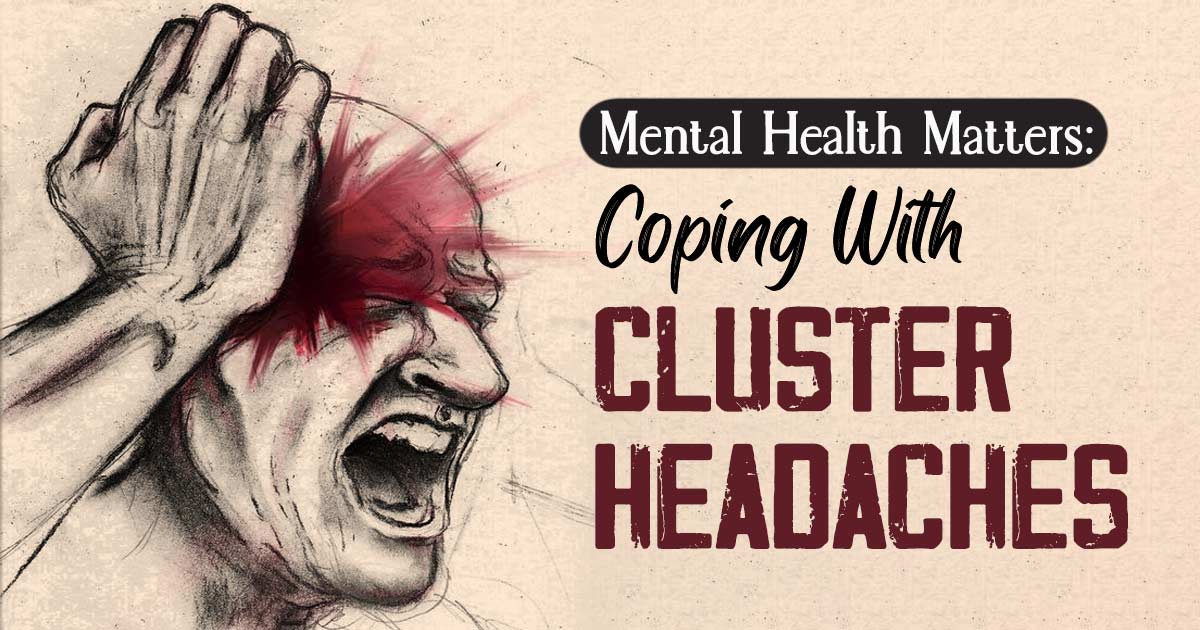Cluster headaches are excruciatingly painful and highly debilitating neurological conditions that have long been associated with physical symptoms. However, recent research has illuminated a significant connection between cluster headaches and mental health symptoms.
Understanding Cluster Headaches
Cluster headaches are characterized by intense, piercing pain typically localized around one eye or on one side of the head. They often occur in clusters, with several attacks happening daily for weeks or months before entering a remission period. These headaches are considered one of the most painful conditions known to medical science and can significantly disrupt a person’s life.
Physical Symptoms Of Cluster Headaches
Before delving into the mental health aspects, it’s crucial to understand the physical symptoms of cluster headaches:
1. Severe Pain:
The pain experienced during a cluster headache attack is often described as excruciating, sharp, and burning, reaching its peak within minutes.
2. Unilateral Location:
The pain is typically on one side of the head, usually centered around the eye, temple, or forehead.
3. Autonomic Symptoms:
Cluster headaches are often accompanied by autonomic symptoms on the affected side, such as tearing, redness of the eye, nasal congestion, or drooping eyelid.
4. Short Duration:
Individual attacks typically last from 15 minutes to three hours, making them much shorter than migraines.
5. Cluster Periods:
These headaches tend to occur in cycles, known as cluster periods, followed by periods of remission when they do not occur.
Mental Health Implications Of Cluster Headaches
The impact of cluster headaches extends beyond physical pain and can profoundly affect a person’s mental health in several ways:
1. Anxiety And Fear:
The unpredictable and excruciating nature of cluster headaches often leads to anxiety and fear in sufferers. They may constantly worry about when the next attack will strike, which can create a constant state of heightened anxiety.
2. Depression:
Chronic pain conditions like cluster headaches can contribute to the development of depression. The relentless pain, along with the disruptions it causes to daily life, can lead to feelings of hopelessness and despair.
3. Social Isolation:
Cluster headaches can isolate sufferers from their social circles. The fear of an attack occurring in public or during social gatherings may lead individuals to withdraw from social interactions, further exacerbating feelings of loneliness and depression.
4. Sleep Disturbances:
Cluster headaches often strike during sleep, leading to severe sleep disturbances. Sleep deprivation can negatively impact mood and cognitive function, worsening mental health symptoms.
5. Impaired Quality Of Life:
The debilitating nature of cluster headaches can severely impair a person’s quality of life. Many individuals find it challenging to maintain employment, pursue hobbies, or engage in meaningful relationships due to the constant threat of pain.
6. Substance Abuse:
Some individuals with cluster headaches may turn to alcohol or other substances to cope with the pain and emotional distress, leading to a risk of substance abuse and addiction.
Treatment Approaches In Cluster Headaches
Effective management of cluster headaches not only alleviates physical pain but can also have a positive impact on mental health. Treatment approaches for cluster headaches may include:
1. Medications:
Several medications, including triptans, calcium channel blockers, and preventive medications, can help reduce the frequency and severity of cluster headache attacks.
2. Oxygen Therapy:
Inhalation of high-flow oxygen during an attack can provide relief for many patients.
3. Nerve Blocks:
Occipital nerve blocks or other nerve block procedures can be effective in reducing pain.
4. Lifestyle Modifications:
Avoiding triggers, maintaining a regular sleep schedule, and managing stress can help reduce the frequency of cluster headaches.
Mental Health Support In Cluster Headaches
In addition to medical treatments, individuals with cluster headaches should seek mental health support to address the emotional toll of the condition:
1. Therapy:
Cognitive-behavioral therapy (CBT) and psychotherapy can help individuals develop coping strategies for managing anxiety, depression, and the emotional impact of cluster headaches.
2. Support Groups:
Joining support groups or connecting with others who share similar experiences can provide emotional support and reduce feelings of isolation.
3. Education:
Learning more about cluster headaches and how they affect mental health can empower individuals to better manage their condition and seek appropriate support.
Cluster headaches are more than just physical pain. Cluster headaches and mental health are profoundly related. The anxiety, depression, social isolation, and other mental health symptoms associated with cluster headaches can be as debilitating as the physical pain itself.
Recognizing this connection and addressing both the physical and emotional aspects of the condition is essential for providing comprehensive care to individuals with cluster headaches. By offering effective treatments and mental health support, healthcare providers can help patients regain control of their lives and well-being.


























